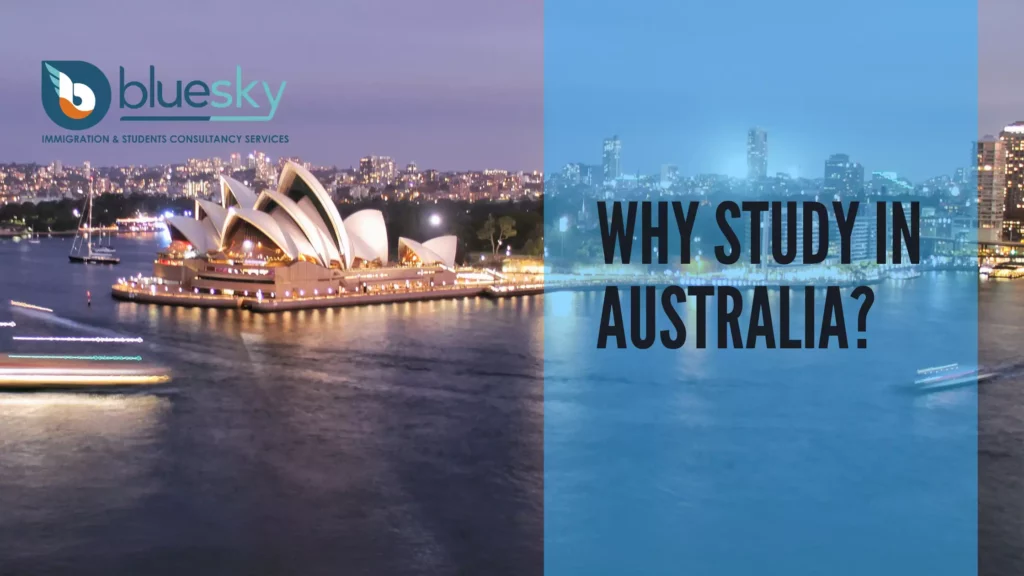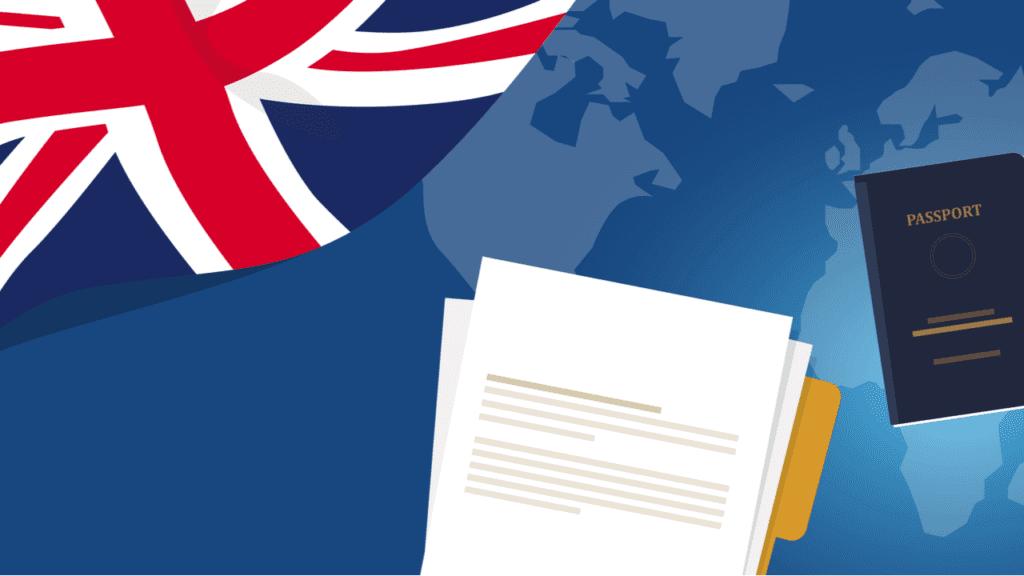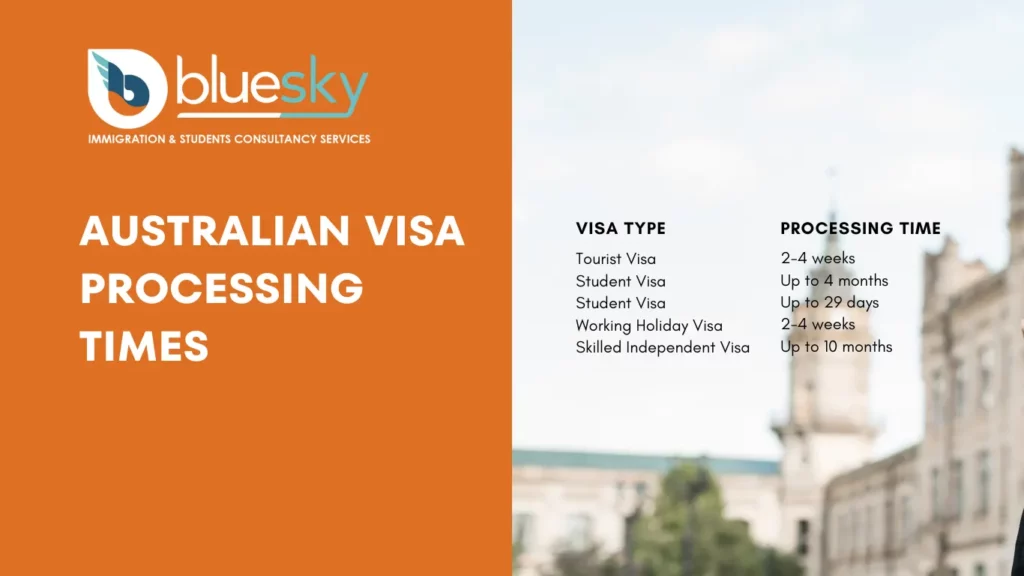Student Visa Australia : Visas, Top Universities, Costs & Everything You Need!
- March 27, 2024
- Posted by: Sandeep
- Category: Study in Australia

Student Visa Australia : Visas, Top Universities, Costs & Everything You Need!
Australia is a popular destination for international students, and for good reason. The country offers a high-quality education system, a diverse student population, and a beautiful environment. If you’re thinking about study in Australia, you’ll need to apply for a student visa.
In this blog post, I’ll provide you with an overview of the student visa process in Australia. I’ll cover the different types of student visas available, the eligibility requirements, the application process, and the processing time. I’ll also share some tips for ensuring that your application is successful.
Why Study in Australia?

There are many reasons why you might want to study in Australia. Here are just a few:
- High-quality education: Australian universities are consistently ranked among the best in the world.
- Diverse student population: Australia is home to a diverse student population from all over the world. This means that you’ll have the opportunity to meet people from different cultures and backgrounds.
- Beautiful environment: Australia is a beautiful country with stunning scenery. You’ll be able to enjoy the beaches, the mountains, and the Outback.
- Work opportunities: After you graduate, you may be eligible to work in Australia for up to 2 years. This is a great way to gain work experience and make connections in the Australian job market.
Student Visa Types in Australia

There are three main types of student visas available in Australia:
- Student visa subclass 500: This is the most common type of student visa. It allows you to study full-time at an eligible Australian education institution.
- Student visa subclass 407: This visa is for students who are participating in a structured English language program.
- Student visa subclass 457: This visa is for students who are participating in a work-integrated learning program.
Eligibility Requirements Student Visa Australia
The eligibility requirements for a student visa in Australia vary depending on the type of visa you are applying for. However, some general requirements include:
- You must be enrolled in a full-time course at an eligible Australian education institution.
- You must meet the English language requirements.
- You must have enough money to support yourself and your dependents during your stay in Australia.
- You must have a valid passport.
Application Process of Student Visa Australia
The application process for a student visa in Australia can be complex. However, there are a few steps that you can follow to make the process easier:
- Start your application early.
- Gather all of the required documents.
- Pay the application fee.
- Submit your application online.
- Track your application status online.
Processing Time of Student Visa Australia
The processing time for a student visa in Australia varies depending on the type of visa you are applying for and the time of year. However, it typically takes 3-5 weeks for your application to be processed.

Tips for a Successful Application for Study in Australia
Here are a few tips for ensuring that your student visa application is successful:
- Start your application early.
- Gather all of the required documents.
- Pay the application fee.
- Submit your application online.
- Track your application status online.
- Write a strong Statement of Purpose.
- Provide clear and concise answers to the application questions.
- Proofread your application carefully before submitting it.
Australian Student Visa Validity
| Visa subclass | Validity |
|---|---|
| 500 | Up to 5 years and in line with your enrolment. |
| 407 | Up to 5 years, or the length of your course, whichever is shorter. |
| 457 | Up to 4 years, or the length of your course, whichever is shorter. |
The validity of your student visa will depend on the type of visa you are applying for, the length of your course, and your age. For example, if you are applying for a subclass 500 student visa and you are enrolled in a 3-year course, your visa will be valid for 3 years.
Australian student Visa Validity according to course duration:
| Course Duration | Visa Subclass | Validity |
|---|---|---|
| 12 weeks to 10 months | 500 | Up to 12 months plus 1 month (for courses below 10 months) |
| 10 months to 2 years | 500 | Up to 2 years plus 1 month |
| 2 years to 5 years | 500 | Up to 5 years |
| Over 5 years | 500 | Up to the length of your course plus 1 month |
Please note that these are just the general guidelines. The actual validity of your student visa will depend on your individual circumstances. For example, if you are under the age of 18, you may be eligible for a shorter visa validity period.
Intakes in Australia
There are three main intakes in Australia:
- February intake: This is the main intake in Australia, and most universities offer a wide range of courses starting in February.
- July intake: This is the secondary intake in Australia, and some universities offer a limited number of courses starting in July.
- November intake: This is a smaller intake, and only a few universities offer courses starting in November.
The application deadlines for each intake vary depending on the university and the course. However, most universities start accepting applications for the February intake in the previous October, and for the July intake in the previous March.
If you are considering studying in Australia, it is important to check the intakes offered by the universities you are interested in. You can also check the application deadlines for each intake.
Top universities in Australia with their ranking in the 2023 QS World University Rankings
The top universities in Australia are consistently ranked among the best in the world. The 2023 QS World University Rankings ranked the Australian National University as the best university in Australia, followed by following.
| Rank | University |
|---|---|
| 1 | Australian National University (ANU) |
| 2 | University of Melbourne |
| 3 | University of Sydney |
| 4 | Monash University |
| 5 | University of Queensland |
| 6 | University of New South Wales (UNSW) |
| 7 | University of Western Australia (UWA) |
| 8 | University of Adelaide |
| 9 | University of Technology Sydney (UTS) |
| 10 | RMIT University |
Australian University Fees by Degree Level
| Degree | Average Annual Tuition Fees |
|---|---|
| Bachelor’s degree | AUD 30,000 – AUD 45,000 |
| Master’s degree | AUD 35,000 – AUD 50,000 |
| Doctoral degree | AUD 40,000 – AUD 55,000 |
Please note that these are just the average tuition fees. The actual tuition fees will depend on the university, the course, and the student’s nationality.
There are a number of scholarships available to international students, which can help to offset the cost of studying in Australia. The Australian government also offers a number of scholarships, including the Australia Awards Scholarships.
Australian student visa fees
| Visa Subclass | Base Application Charge | Additional Applicant Charge 18 And Over | Additional Applicant Charge Under 18 | Non-Internet Application Charge | Subsequent Temporary Application Charge |
|---|---|---|---|---|---|
| Student visa (subclass 500) – All other students | $710.00 AUD | $350.00 AUD | $175.00 AUD | N/A | $700.00 AUD |
| Student visa (subclass 500) – Foreign Affairs or Defence sector | $0.00 AUD | N/A | N/A | N/A | N/A |
| Student visa (subclass 500) – Postgraduate research sector | $710.00 AUD | N/A | N/A | N/A | N/A |
| Student visa (subclass 500) – Secondary exchange (Schools sector) | $0.00 AUD | N/A | N/A | N/A | N/A |
| Training visa (subclass 407) | $405.00 AUD | $405.00 AUD | $105.00 AUD | N/A | $700.00 AUD |
List of the requirements to apply for an Australian student visa
| Document | Description |
|---|---|
| Valid passport | Your passport must be valid for at least 12 months beyond the end of your intended stay in Australia. |
| Visa application fee | The visa application fee is AUD$710 for most applicants. |
| Confirmation of Enrolment (CoE) | You must have a CoE from an Australian education provider confirming that you have been accepted into a course of study. |
| Genuine Temporary Entrant (GTE) statement | You must submit a GTE statement explaining why you want to study in Australia and why you will return home after your studies are complete. Learn more about GTE |
| Evidence of English language proficiency | You must provide evidence that you meet the English language requirements for your course of study. This can be done by submitting the results of an approved English language test, such as IELTS or TOEFL. |
| Proof of sufficient funds | You must prove that you have enough money to support yourself and your dependents (if applicable) during your stay in Australia. This includes the cost of tuition fees, living expenses, and return airfare. |
| Overseas Student Health Cover (OSHC) | You must have OSHC insurance that covers you for the duration of your stay in Australia. |
| Character Requirement | You must not have a criminal record that would make you ineligible for a visa. |
| Health Requirement | You must meet the health requirements for entry into Australia. This includes providing a medical certificate that shows you are free from any contagious diseases. |
| Photographs | You must submit two recent passport-sized photographs. |
| Application form | You must complete and sign the Australian student visa application form. |
Here are some tips for applying for the Student Visa Australia:
- Start your application early.
- Make sure you have all the required documents.
- Pay the application fee online.
- Track your application status online.
There are some of the benefits of study in Australia:
- High-quality education: Australian universities are consistently ranked among the best in the world.
- Diverse student population: Australia is home to a diverse student population from all over the world, consequently you’ll have the opportunity to meet people from different cultures and backgrounds.
- Beautiful environment: Australia is a beautiful country with stunning scenery. You’ll be able to enjoy the beaches, the mountains, and the Outback.
- Work opportunities: After you graduate, you may be eligible to work in Australia for up to 2 years, furthermore, this is a great way to gain work experience and make connections in the Australian job market.
- Post-study work visa: After you graduate, you may be eligible to apply for a post-study work visa, as a result, this visa allows you to stay in Australia and work for up to 4 years.
- Affordable tuition fees: The average cost of tuition for an international student in Australia is AUD 22,000 per year, which is significantly lower than the cost of tuition in many other countries.
- Scholarship opportunities: There are a number of scholarships available to international students, which can help to offset the cost of studying in Australia.
- Support services: There are a number of support services available to international students, such as English language classes, counseling services, and financial assistance.
Feel free contact for more details:
Contact Form
Faq’s about Student Visa Australia
The processing time for a student visa in Australia varies depending on the type of visa you are applying for and your individual circumstances. However, it typically takes between two and four weeks to process a Student visa (subclass 500) and between three and six months to process a Temporary Graduate visa (subclass 485).
The three main requirements for a student visa in Australia are:
1. Admission to an eligible Australian educational institution.
2. Proof of English language proficiency.
3. Proof of sufficient funds to support yourself during your stay in Australia.
Disclaimer:
The information contained on this blog post is for informational purposes only and is not intended to be a substitute for professional advice. And the information provided on this blog should not be construed as professional advice.
While I strive to provide accurate and up-to-date information, I cannot guarantee that all information is complete or error-free. You should always consult with a qualified professional before making any decisions based on the information contained on this blog post.
